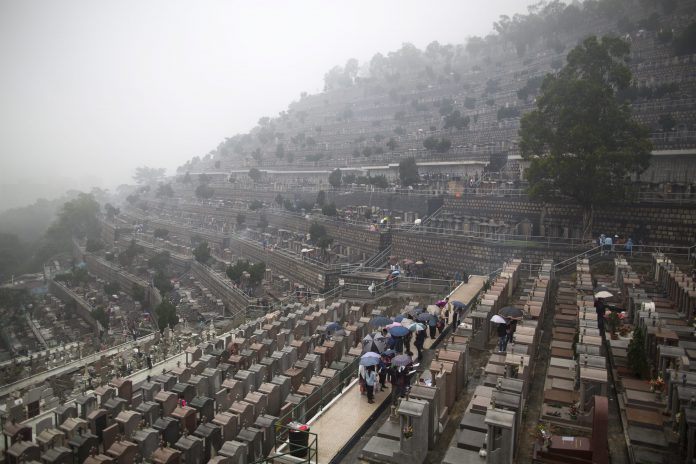Macau (MNA) – The Civic and Municipal Bureau (IACM) has requested the Land, Public Works and Transport Bureau (DSSOPT) to suspend the development plan for the crematorium project in Taipa due to public backlash.
On June 14, the DSSOPT launched a consultation over a public development plan that revealed intentions by the government to build a crematorium inside the Sa Kong Cemetery near Estrada de Magalhães Correia in Taipa.
According to the head of the IACM, José Tavares da Silva, backlash against the project led the government’s decision to suspend the plan.
The IACM has previously indicated that the need for a crematorium facility was justified by the increase in demand for cremation services by local residents, with estimates predicting Macau’s population will reach 800,000 people by 2036, of which 160,000 will be elderly residents.
However, the government had not predicted the resistance shown by the population given the support residents had given in previous years to the idea of building a crematorium.
The government now intends to change the current legislation which mandates that crematoriums can only be developed inside cemetery’s while searching for another suitable land plot for the project, a process the IACM head admitted “could take years” to conclude since “the law needs to be changed, a location has to be found and then maybe another public consultation needs to be conducted.”
“Under the current law it is very hard to find another better location […]. If the law is revised, we will have more chances to find a location better suiting people’s expectations,” he added.
Tavares was adamant about promoting the cemetery as the ideal location to minimise impact on the population, with the nearby Taipa hill acting as a protecting barrier for nearby residencies, the cemetery being located seven kilometres from a mortuary house and with availability of natural gas pipes for the cremating process.
Nevertheless, opposing views expressed by residents in the area during a meeting with the IACM head on Monday, and “backlash on social media” led the department to remove the location as a possibility.
Previously, a petition organised by the Macau General Union of Neighbourhood Associations with 715 signatures opposing the crematorium had been submitted to the IACM with the New Macau Association (NMA) having also voiced concerns about the environmental impact of the crematorium last week.
Concerns from residents over the crematorium have also ranged from the assumed smell and pollution caused by it to superstitious reasons or even real estate depreciation concerns.
The government representative said the government intended to develop a “high-end” facility “similar to the ones in Hong Kong,” sometimes just 200 metres away from schools or residences, in which gas diffusion would follow European standards with minimum harmful emissions.
“In Hong Kong, crematoriums are right next to residencies and do not even emit powder or gas. There’s immediate supervision by environmental departments. That is what we want to do in Macau,” he added.
When asked why the IACM did not defend its conviction that the Taipa Sa Kong Municipal Cemetery was the best location or divulged more information that could ease residents’ concerns, Mr. Tavares said “residents did not even want to listen” to him.
“I could not convince the residents […]. We tried to explain what we wanted to do but people told me to shut up, they just said they did not want it,” he said.
The IACM head also refuted the idea that residents had not prior knowledge of the Taipa cemetery as a possible location stating that in 2017 the DSSOPT mentioned Sa kong as one of the choices on the table.
“Nothing was made behind doors. We were waiting for the DSSOPT to give the green light that the cemetery could be used […]. We had no guarantees the location could be used, but maybe we should have predicted the residents’ concerns. For me it was a shock after residents have for so many years asked for a crematorium,” he said.
Yet, Mr. Tavares admitted that the opposing views might have been raised due to the lack of information provided about the project to the population.




















